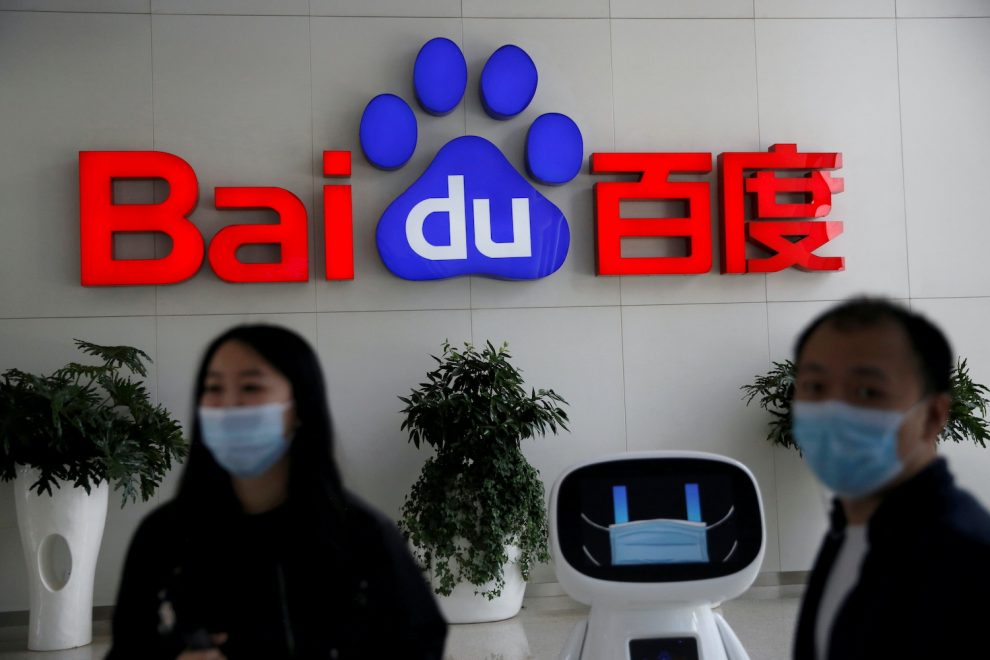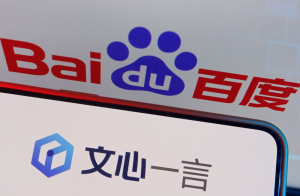(AF) Baidu will likely become the first US-listed Chinese company to launch a secondary listing in Hong Kong this year, while reports say short video site Bilibili, as well as China’s rising electric-vehicle start-ups – Nio, Li Auto, and Xpeng – also intend to capitalise on the growing demand of potential investors in Asia.
After the $5.4 billion IPO of TikTok rival Kuaishou last month, those of JD.com’s logistics arm ($5 billion), Baidu ($5 billion) and Bilibili ($3 billion) are imminent massive floats in Hong Kong to watch for.
Baidu, Nasdaq-listed Chinese search engine giant and artificial intelligence (AI) firm, has won approval from the Hong Kong stock exchange for a secondary listing.
Bank of America Securities, CITIC Securities, and Goldman Sachs are joint sponsors for the deal, the company’s post-hearing information pack document posted to the bourse’s website on Tuesday showed.
Baidu did not reveal the timetable or size of the listing, but local media reports said it is likely to happen this month and raise up to HK$39 billion ($5 billion).
This came after Baidu disclosed in February that its full-year net income for 2020 surged more than tenfold to 22.5 billion yuan ($3.5 billion) while its total revenue decreased slightly by 0.3% to 107.1 billion yuan ($16.4 billion).
The search giant’s shares soared 13.6% on Tuesday in New York and closed at $264.28.
USE OF FUNDS RAISED
Baidu will use the funds raised from the secondary listing to strengthen its AI capabilities such as AI cloud solutions, “intelligent” driving and AI chip design, further grow its mobile content and service platform which includes the flagship Baidu app, as well as to replenish its working capital.
The new share sale in Hong Kong comes as Baidu beefs up its autonomous and “smart” transport technology to tap into the fast-growing electric-vehicle (EV) market.
Last month, it said it would set up a smart electric vehicle (EV) company with Geely. Public records show that Baidu’s EV venture, dubbed Jidu Auto, was registered on 2 March. Xia Yiping, formerly the head of Fiat Chrysler’s Asia Pacific Smart Car Alliance Business Unit and the co-founder and chief technology officer of Mobike, has been appointed chief executive of Jidu Auto.
Baidu said in its information-pack document that it plans to achieve mass production of “intelligent” electric vehicles, and will boost the size of its Apollo Robotaxi fleet, obtain more driving licenses and expand geographic reach.
To enrich is mobile content and service offerings, Baidu agreed in November to acquire Joyy Inc’s YY Live, a live-streaming network that offers music and dance shows, talk shows, and anime, for $3.6 billion.
“The acquisition has been substantially completed,” Baidu said.
Short-seller Muddy Waters Research had labelled YY Live as “90% fraud”, but Baidu said a review by JOYY into the YY Live business found the allegations “were not substantiated” and hence it decided to proceed with the transaction.
YY Live reported revenue of 9.95 billion yuan ($1.5 billion) in 2020, which was about 9% of that of Baidu. Its net profit for 2020 was 3.1 billion yuan ($476 million), about 16.5% of that of the search giant.
Not counting potential contribution from the acquisition of YY Live, Baidu said it expected revenue for the first quarter of 2021 to range from 26 billion yuan ($4 billion) and 28.5 billion yuan ($4.4 billion), representing a growth rate of 15% to 26% year on year.
BEIJING’S ANTI-MONOPOLY CAMPAIGN
While “anti-monopoly” has been an item of priority on Beijing’s agenda, Baidu said it has taken notice of the Anti-Monopoly Guidelines for Internet Platforms released by the State Council last month, but is unsure of its impact on Baidu’s business.
“If any non-compliance is raised by relevant authorities and determined against us, we may be subject to fines and other penalties,” Baidu said.
The company disclosed in its information pack document that it received an inquiry from the State Administration for Market Regulation (SAMR) related to not giving advance notice of acquisition deals for anti-monopoly review. One of the cases led to a 500,000 yuan ($76,750) penalty, which Baidu did not object, it said.
To warn big internet companies that regulators would no longer tolerate monopolistic practices and alert them to increased scrutiny, SAMR also slapped fines of 500,000 yuan ($76,750) on both Alibaba and Tencent-backed China Literature in December – for failing to properly report on past deals for anti-monopoly reviews, according to a SAMR announcement.
In regard to its listing plan, Baidu is following a slew of US-listed Chinese companies that have retreated to Hong Kong amid stricter enforcement of accounting rules in the US and tension over a host of geopolitical issues.
SAFE HAVEN FOR FUNDRAISING
The US House of Representatives in December passed a bill that gives US-listed Chinese companies three years to comply with the US auditing oversight rules.
The bill’s passage in June in the US Senate spurred an exodus of US-listed Chinese companies such as NetEase and JD.com for secondary listings in Hong Kong, as an alternative ‘safe haven’ for raising capital.
Besides Baidu, Nasdaq-listed Bilibili, a Chinese short-video platform popular among Generation Z, is also reportedly seeking to raise up to $3 billion in a secondary listing in Hong Kong this month though the company has not yet made an announcement.
• Iris Hong
This page was upgraded on February 15, 2022 to meet style standards.
ALSO SEE:
Baidu lists eight technologies set to transform human life
China’s Baidu beats revenue forecasts on strong cloud and AI demand
Huawei describes what the new digital China will be like
Digital China plans underway, $49 billion of new contracts signed
Next-gen tech is speeding up financial sector change in Asia























